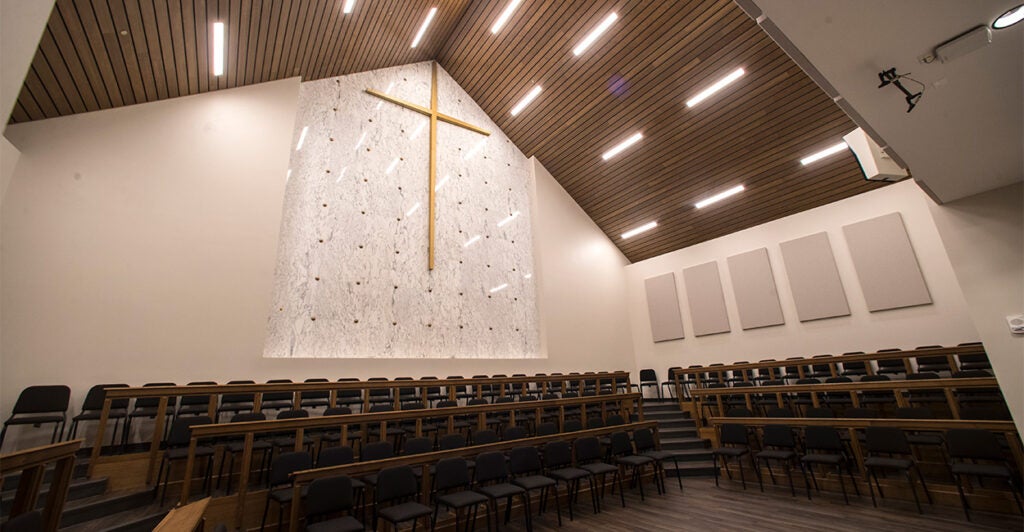A Texas church is suing the local government, claiming that “illegal excessive” fees to install a water tap violate the U.S. Constitution and the state’s religious freedom law.
First Liberty Institute, a legal organization focused on religious liberty, and King & Spalding LLP, an international law firm, filed the lawsuit Wednesday against Southern Montgomery County Municipal Utility District on behalf of Grace Community Church in The Woodlands, Texas.
“The county’s water tap fee scheme is a thinly veiled illegal property tax on Grace Community Church,” Jeremy Dys, senior counsel at First Liberty Institute, told The Daily Signal in an emailed statement Thursday. “Local governments like Montgomery County, in search of new revenue, are illegally targeting churches and other non-profits with similar schemes.”
The district initially told the church that labor and materials would cost $24,900 to connect to the water line. Later, the church asked the district to install the water tap, which the district said would cost $61,500, which is much higher than the actual cost. The church challenged the cost because of its tax-exempt status, at which point the district countered with a tap fee of $147,938, more than doubling the prior fee. Eventually, the church had no choice but to pay the fees.
“No government agency should impose a ‘fee-in-lieu-of-taxes’ against faith-based entities,” Dys told The Daily Signal. “What we see now is merely an effort to generate revenue by those the State of Texas have protected against taxation because of the tremendous good they do in the community.”
Dys said the church had not heard of any other complaints about the district placing illegal fees on any other entities.
“To be clear, there is no dispute that Grace should pay and is willing to pay tap fees reflecting the district’s actual costs to install a water tap and provide service to Grace,” the church writes in the lawsuit’s preliminary statement.
The district is instructing Grace Community Church to pay additional fees that aren’t related to the water tap or any service provided, and the district “admits as much,” according to the preliminary statement.
The church is making three legal claims against the district: that the district violated the Texas water code, that the district violated the Texas Religious Freedom Restoration Act, and that the district violated the free exercise clause in the U.S. Constitution’s First Amendment, incorporated to the states through the Fourteenth Amendment.
“A party that pays unlawful taxes or fees to a governmental entity under duress may recover those fees” under the Texas water code, the lawsuit notes.
The lawsuit claims that the district violated the Texas religious freedom act by placing “a real and substantial burden on Grace’s and its members’ free exercise of religion.”
The suit also claims that the district’s move “restricts Grace’s ability to provide services tied to the central tenants of Grace’s and its members’ faith,” in violation of the U.S. Constitution.
Dys told The Daily Signal that he is hopeful Grace Community Church will triumph in this lawsuit.
“Churches like Grace Community are important parts of the communities they serve,” Craig Stanfield, a partner in the firm of King & Spalding, said in a statement on the lawsuit. “The resources of churches are best used in fulfilling their mission to serve their congregations and communities, not in paying unlawful taxes. We look forward to securing a refund for Grace Community.”
Have an opinion about this article? To sound off, please email letters@DailySignal.com, and we’ll consider publishing your edited remarks in our regular “We Hear You” feature. Remember to include the URL or headline of the article plus your name and town and/or state.
